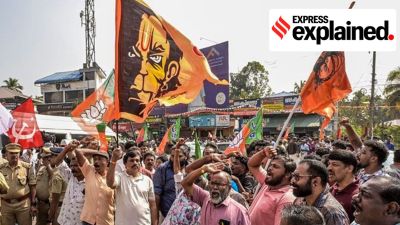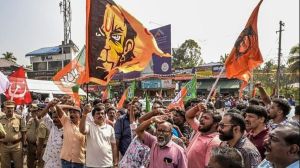The Lok Sabha Ethics Committee’s report recommending the expulsion of Trinamool Congress (TMC) MP Mahua Moitra will now go to the Lok Sabha Speaker. The committee on Thursday adopted the report by six votes to four.
A complaint by BJP MP Nishikant Dubey that Moitra sought favours from businessman Darshan Hiranandani to ask questions against industrialist Gautam Adani — something Hiranandani accepted in a letter to the committee — sparked a chain of events leading to the report.

Rules on what happens next
The rules governing the procedures of the Ethics Committee — incorporated in Chapter XXA of the Rules of Procedure and Conduct of Business in the Lok Sabha in August 2015 — state that the recommendations of the Committee shall be in the form of a report and it shall be presented to the Speaker who may direct that it be tabled in the House. The rules say that the report “may also state the procedure to be followed by the House in giving effect to the recommendations made by the Committee”.
Rule 316 E lays down the procedure to be adopted for consideration of the report by the House. “After the report has been presented, the Chairperson or any member of the Committee or any other member may move that the report be taken into consideration whereupon the Speaker may put the question to the House,” it reads.
Before putting the question to the House, the rules say the Speaker may permit a debate on the motion not exceeding half an hour. After the motion is agreed to, the chairperson or any member of the committee, or any other member, “may move that the House agrees or disagrees, or agrees with amendments, with the recommendations contained in the report”.
Rule 316 F says that “a motion that the report of the Committee be taken into consideration shall be put down in the list of business after disposal of questions”.
Procedures ethics panel has to follow
Story continues below this ad
Asked what happens if a motion to approve a recommendation of the Ethics Committee to expel a member is adopted by the Lok Sabha with a majority, former LS secretary general PDT Achary told The Indian Express, “The member stands expelled the moment such a motion is adopted by the House.”
Regarding procedures to be followed by the Ethics Committee, Achary said, “The complainants, the ones who supported the complaint and the member against whom the complaint is made are called before the committee for examination and cross-examination. That is the procedure but I have no knowledge about what has happened in this case.”
What does the Ethics Committee do?
The Speaker appoints members of the committee for one year and at present it is headed by Vinod Kumar Sonkar of the BJP. The other committee members are Vishnu Datt Sharma, Sumedhanand Saraswati, Aparajita Sarangi, Dr Rajdeep Roy, Sunita Duggal, and Subhash Bhamre of the BJP; V Vaithilingam, N Uttam Kumar Reddy, Balashowry Vallabbhaneni, and Preneet Kaur of the Congress; Hemant Godse of the Shiv Sena; Giridhari Yadav of the JD(U); P R Natarajan of the CPI(M); and Danish Ali of the BSP.
Since coming up over two decades ago, the committee has heard several complaints but these have largely been of a light nature. More serious complaints in the past have been heard either by the Committee on Privileges or by a committee specifically set up by the House.
Story continues below this ad
In 2005, 11 MPs were expelled — 10 from the Lok Sabha and one from the Rajya Sabha — in a cash-for-query scam based on the report of the P K Bansal Committee. Bansal was a senior Congress MP. The BJP protested the Lok Sabha’s decision, demanding that the Bansal Committee report be sent to the Committee of Privileges so that the parliamentarians could defend themselves. The functions of the Privileges Committee and the ethics panel often overlap.
































